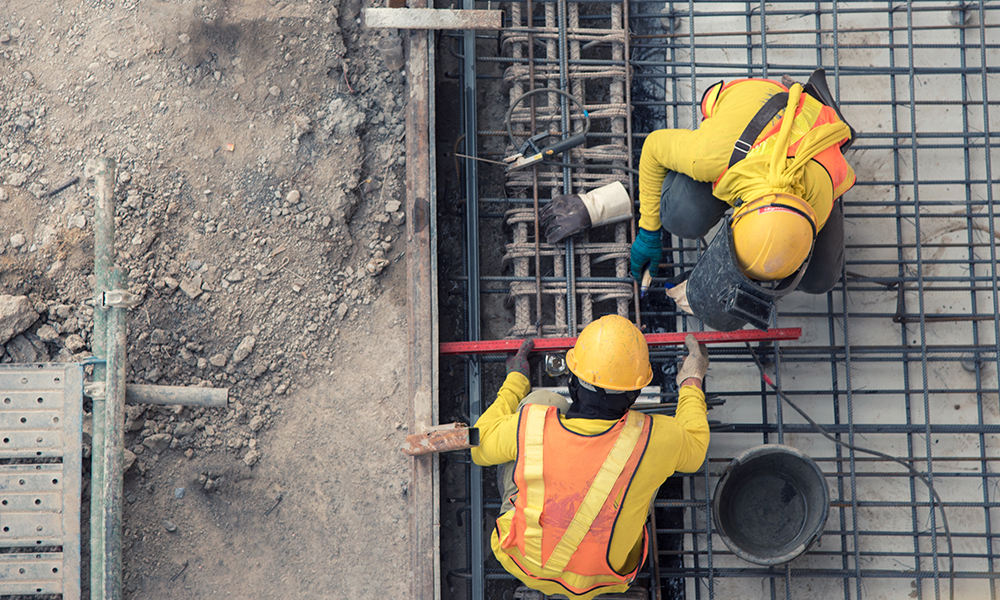Mastering measurement – driving sustainable choices through better data
Frank Janssens, KROHNE Middle East and Africa says the direction of travel is now set for a more sustainable operation of infrastructure and a boost to micro- and macro-economic stability

“If you can’t measure it, you can’t improve.”
I paraphrase one of the world’s leading strategists, Peter Drucker, as it encapsulates a sentiment of a world increasingly looking towards measurement as a way to reduce errors and optimise industrial processes in an effort to drive more sustainable outcomes. The readers of this article will hopefully agree that we are all in the business of enhancing our plant operations as we focus even more on protecting limited resources, environmental, social impact, globally and across the Middle East region. A great deal of this challenge can be solved in part by the field of process measurement and how this enables both predictive and reactive responses in the field.
We are seeing entities treat their data much like they treat traditional resource assets, e.g. electricity, water and gas. Setting up standard operating procedures to manage and maintain the quality of data assets is now essential. Often, the opportunities for improving poor data quality at a utility are not realized because a meaningful assessment is yet to be undertaken, and the recommendation is to take a helicopter view of this evaluation. While various software offerings can perform multiple functions to better understand data patterns and outcomes, in order to be successful, it has become a must to manage data holistically, employing best-in-class equipment and methods to generate qualitative data with meaningful outputs. Finally, communicating the value of high data quality across the business and then taking steps to improve it is essential to driving utilities toward being more digital and enabling a data-centric culture.
Having discussed the importance of collecting the quality and quantity of data, we should dive into the metaphorical reservoir to explore in more detail the benefits of precise data collection and best practice methods. Four areas stand out from my perspective as important right now and for the immediate future of the sector:
- Reduce environmental impact and increase safety
- Avoiding reduced plant malfunctioning and shutdowns
- Making the day to day more efficient
- Saving money
All these scenarios are linked and can benefit from top-notch process measurement.
A plant malfunctioning or even worse a shutdown can be disastrous for a company and all stakeholders associated, down to the consumer unable to turn on their lights or taps right through to the economic ramifications and reputational issues. International standard best practice implementation of the state-of-the-art technological products and solutions can be used to track recommended levels of flow, pressure, temperature, level and analysis in order to monitor stress points in a plant infrastructure and act swiftly, ideally in advance of an accident. Digitalisation of these sensors and field instruments ensures a reduction in human error too, enabling a utility provider to raise the alarm more efficiently than was previously possible. This level of automation, previously unheard of but commonplace nowadays because of ongoing upgradations towards connected services and IoT applications, could have made plant failures of the scale of Chernobyl or Buncefield the stuff of nightmares instead of reality in our lifetimes.
The recent news that ten Dubai government entities will be listed on the Dubai Financial Market[1] shines the spotlight on efficiencies across the public sector too. Public scrutiny follows a listing on the stock exchange and it is in the best interests of companies to operate transparently. What better way to demonstrate this than vast data records showcasing optimal resource management, powered by best-in-class metering solutions from end to end? The difference post-IPO is that shareholders will demand this level of detail in order to justify their investment and stock valuation; previously the analytics might have been shared as a differentiating value-add. Ongoing day-to-day operations should benefit greatly from these enhanced measures and savings.
Finally, a nod towards saving money, something that will apply to everyone connected to the utilities sector. How are consumers impacted? Here in the Middle East, we are lucky to be living in one of the most technologically advanced countries in the world. For example, as nationals and residents, we can track water consumption via a smartphone application near to real-time. This is in large part due to the precision metering in place that can deliver readings in near-real time, allowing for remote monitoring and alerts in case of an unexpected leak or flood. One can even alert your utility provider that you are travelling out of the country, putting the onus on the company to monitor your usage in case of emergency.
Let’s not forget of course that any money saving result will come from better management of limited resources. In a time when we all must be increasingly mindful of wastage, wherever we can measure and improve is a bonus and hopefully reduces the environmental impact.
All of the above point towards a more sustainable operation of infrastructure and a boost to micro- and macro-economic stability. When a company like KROHNE started out a hundred years ago, we already knew the importance of our tools as a means to contribute towards a better planet. We will continue generating the right data for a tomorrow that looks increasingly measurable and measured.
[1] https://www.thenationalnews.com/business/markets/2021/11/03/dubai-listing-of-state-entities-will-be-catalyst-for-growth-analysts-say/
























